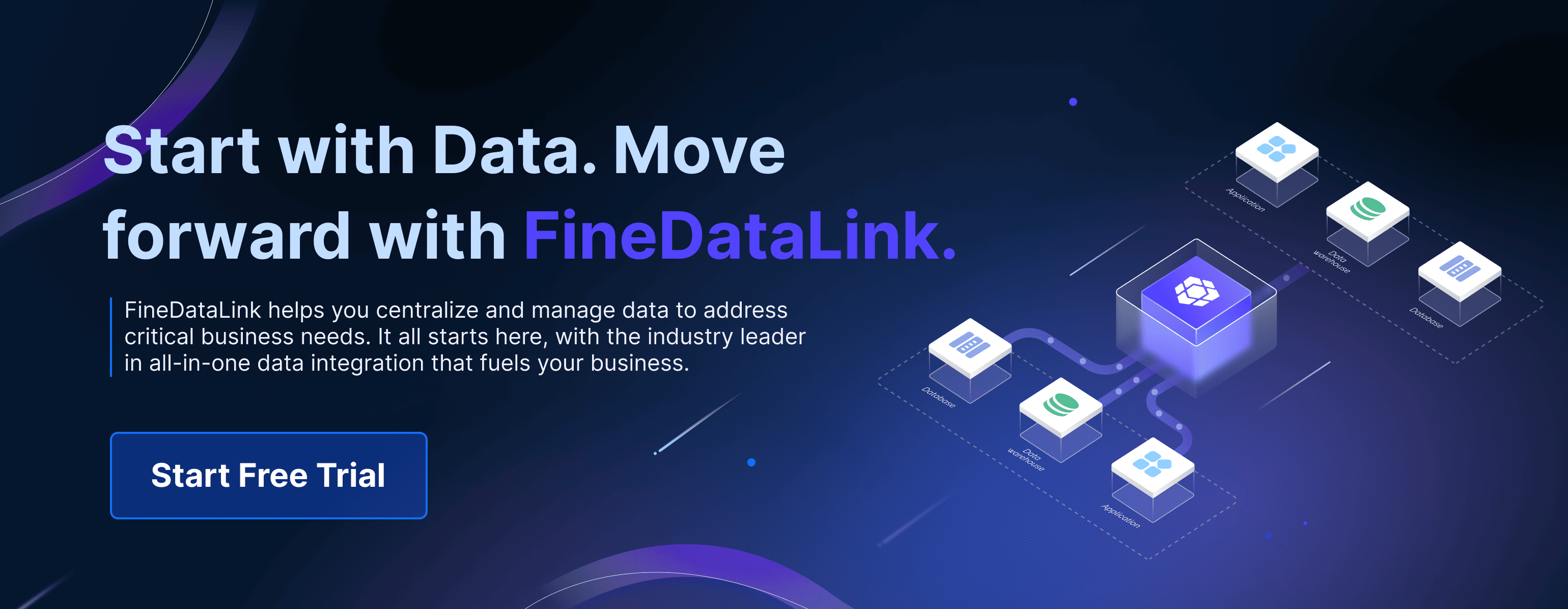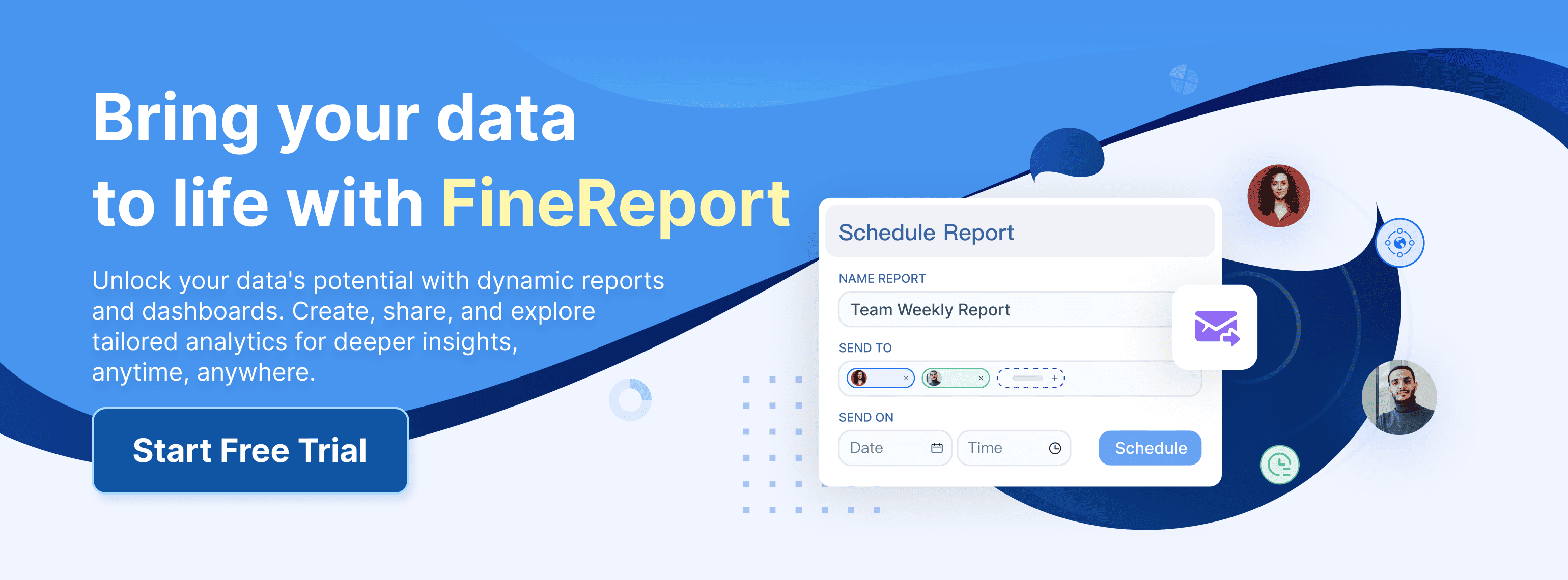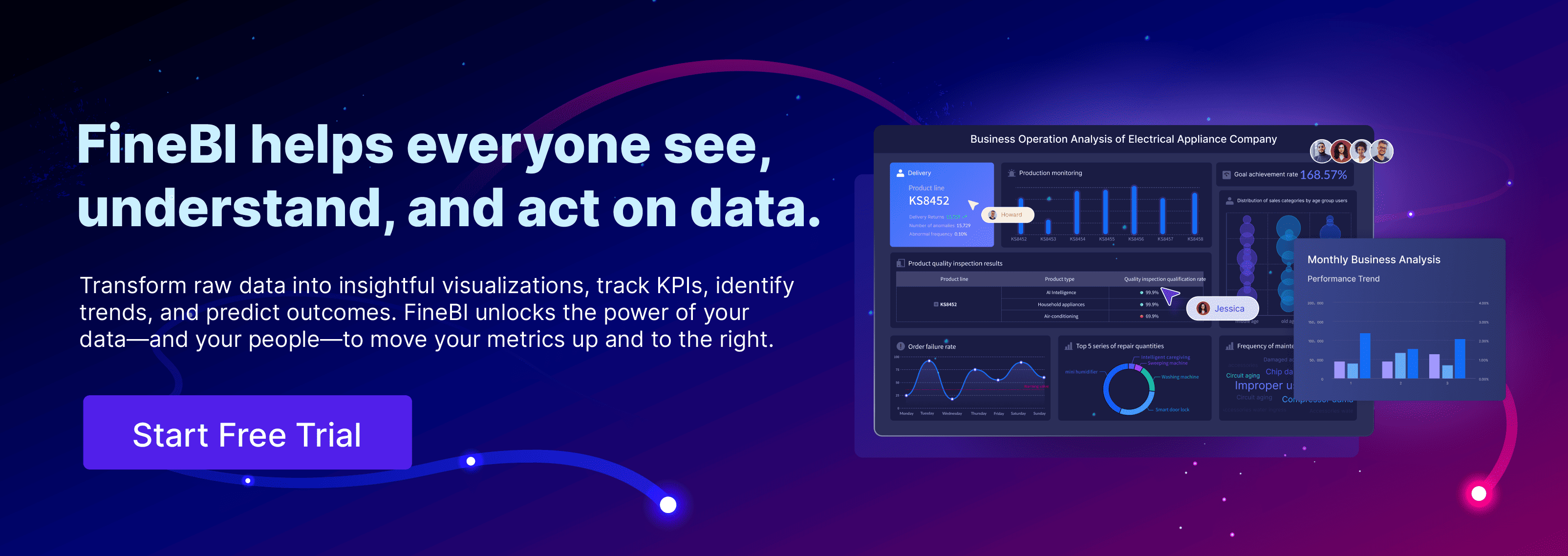

Data filtering refines your data to extract the most relevant information. This process is crucial for managing large volumes of data efficiently. By focusing on essential data, you enhance decision-making and streamline operations. Tools like FineDataLink, FineReport, FineBI, and FineVis empower you to filter data effectively. These tools help you eliminate irrelevant data, allowing you to concentrate on what truly matters. As a result, you can make informed decisions quickly, improving your business's overall performance and efficiency.
Understanding Data Filtering
Definition and Explanation of Data Filtering
Data filtering is the process of refining datasets to extract the most relevant information. You use specific criteria to narrow down large volumes of data, focusing on what truly matters. This process enhances your ability to make informed decisions by presenting only the most pertinent data. By filtering out unnecessary information, you can streamline operations and improve efficiency. Data filtering also plays a crucial role in enhancing the accuracy of AI models, as it reduces computational time and improves model performance.
Types of Data Filtering
Manual Data Filtering
Manual data filtering involves human intervention to sift through data. You apply specific criteria to identify and extract relevant information. This method requires a keen eye for detail and a thorough understanding of the data. While manual filtering can be time-consuming, it allows for a personalized approach to data analysis. You can tailor the filtering process to meet specific needs, ensuring that the most relevant data is highlighted.
Automated Data Filtering
Automated data filtering uses software tools and algorithms to refine datasets. This method significantly enhances efficiency by quickly processing large volumes of data. You set predefined criteria, and the system automatically filters the data accordingly. Automated filtering reduces the risk of human error and ensures consistency in data analysis. It is particularly beneficial for businesses dealing with vast amounts of data, as it allows for real-time insights and faster decision-making.
Importance of Data Filtering for Businesses
Data filtering plays a pivotal role in enhancing your business operations. By focusing on the most relevant information, you can streamline processes and make informed decisions. Let's explore how data filtering enhances data quality and improves efficiency in business operations.
Enhancing Data Quality
Data quality is crucial for any business aiming to make informed decisions. By implementing data filtering, you can refine your datasets to ensure accuracy and relevance. This process helps you eliminate redundant or erroneous data, which can otherwise lead to misleading insights. With high-quality data, you can tailor your offerings and services to meet customer preferences, leading to a more personalized customer experience.
"Businesses with data filtering can target specific customer segments, tailor campaigns, promotions, and product recommendations based on customer preferences and behaviors."
Data filtering also supports data security by presenting only what is needed and filtering out sensitive or irrelevant information. This ensures that your business complies with data protection regulations while maintaining the integrity of your data.
Improving Efficiency in Business Operations
Efficiency is key to staying competitive in today's fast-paced business environment. Data filtering allows you to focus on the most pertinent information, reducing the time and resources spent on processing large datasets. By filtering data in real-time, you can access the most relevant insights instantly, enabling timely responses to dynamic business environments.
"Real-time data filtering allows businesses to access the most relevant information instantly, facilitating timely responses to dynamic business environments."
Moreover, data filtering enhances the performance of analytical tools by limiting the amount of data processed at any given time. This not only speeds up data analysis but also reduces computational time, allowing you to derive valuable insights more quickly.
Benefits of Data Filtering
Data filtering offers numerous advantages for your business. By focusing on the most relevant information, you can streamline data management, facilitate better decision-making, and reduce data overload.
Streamlining Data Management
Data filtering simplifies the management of large datasets. By eliminating unnecessary information, you can concentrate on what truly matters. This process reduces the time and resources needed for data analysis. You can quickly access the data you need without sifting through irrelevant details. This efficiency leads to cost savings and improved productivity in data-related tasks.
"Efficient data filtering can lead to cost savings by optimizing data source utilization and improving the overall productivity of data-related tasks."
Facilitating Better Decision-Making
Effective decision-making relies on accurate and relevant data. Data filtering enhances your ability to make informed choices by presenting only the most pertinent information. You can focus on specific tasks or analyses, leading to more targeted and effective decisions. This approach allows you to quickly analyze relevant data, providing insights that drive strategic growth.
"Data filtering is critical for efficient decision-making and targeted insights."
Reducing Data Overload
In today's digital age, businesses often face data overload. Data filtering helps manage this challenge by selectively displaying or analyzing data based on specific criteria. By filtering out redundant or irrelevant information, you can enhance understanding and insights. This process not only improves data security but also ensures that you focus on the data that truly impacts your business.
"Data filtering enhances data security and efficiency in decision-making."
Practical Applications of Data Filtering
Data filtering plays a crucial role in various business operations. By focusing on relevant information, you can enhance decision-making and streamline processes. Let's explore some practical applications of data filtering in different business areas.
Customer Data Analysis
In the realm of customer data analysis, data filtering allows you to segment your audience effectively. By applying specific criteria, you can identify customer preferences and behaviors. For instance, an e-commerce company might filter customer data to target a marketing campaign. They could use multiple criteria, such as customers who have purchased over $100 in the last month, are in the 25-35 age range, and have previously bought electronic products. This targeted approach enables you to tailor marketing efforts, increasing engagement and conversion rates.
"Businesses with data filtering can target specific customer segments, tailor campaigns, promotions, and product recommendations based on customer preferences and behaviors."
Market Research and Trends
Data filtering proves invaluable in market research and trend analysis. By refining large datasets, you can focus on emerging trends and consumer demands. This process helps you adapt your strategies to align with current market conditions. For example, if you want to decide on product production during the holiday season, you can filter sales data by time to help forecast demand. This ability to quickly refine data ensures that you stay competitive and make informed decisions that align with your business goals.
"Real-time data filtering allows businesses to access the most relevant information instantly, facilitating timely responses to dynamic business environments."
Financial Data Management
In financial data management, data filtering enhances accuracy and efficiency. By focusing on specific financial metrics, you can streamline reporting and analysis. This process helps you identify key performance indicators and monitor financial health. For instance, filtering financial data by department or project allows you to assess budget utilization and profitability. This targeted approach ensures that you concentrate on critical financial insights, enabling better resource allocation and strategic planning.
"Efficiently navigating through data is crucial in the vast world of information. Data filtering is a key process that helps individuals and organizations extract valuable insights, organize information, and make informed decisions."
Tools and Technologies for Data Filtering
In today's data-driven world, you need effective tools and technologies to manage and filter data efficiently. These solutions help you refine datasets, ensuring that you focus on the most relevant information for your business needs.
Software Solutions
Data Filtering Software
Data filtering software plays a crucial role in streamlining data analysis. By eliminating irrelevant and erroneous data, these tools provide cleaner data subsets. This refinement enhances decision-making by presenting only the most pertinent information. Many data filtering software options offer user-friendly interfaces, allowing you to filter data without extensive programming knowledge. This accessibility ensures that even those with limited technical skills can effectively manage and analyze data.
"Data filtering aims to refine datasets by isolating specific information based on predefined criteria, enhancing the relevance and efficiency of data analysis for informed decision-making."
Business Intelligence Tools
Business intelligence (BI) tools integrate data filtering capabilities to enhance your analytical processes. These tools allow you to visualize and interpret data, providing insights that drive strategic decisions. BI tools often include features like dashboards and reports, which help you monitor key performance indicators and trends. By leveraging BI tools, you can transform raw data into actionable insights, improving your business's overall performance.
Techniques and Algorithms
Machine Learning Algorithms
Machine learning algorithms offer advanced data filtering techniques. These algorithms analyze patterns within datasets, enabling you to predict outcomes and identify trends. By using machine learning, you can automate the data filtering process, reducing the time and effort required for manual analysis. This approach not only enhances efficiency but also improves the accuracy of your insights.
Rule-Based Filtering
Rule-based filtering involves setting specific criteria to refine datasets. You define rules that determine which data points to include or exclude. This method provides a straightforward way to manage data, ensuring consistency and accuracy. Rule-based filtering is particularly useful when you need to apply consistent standards across large datasets. By implementing rule-based filtering, you can maintain data quality and focus on the most relevant information.
FanRuan's Role in Data Filtering
FanRuan plays a pivotal role in enhancing data filtering processes for businesses. By offering a suite of powerful tools, FanRuan empowers you to manage and analyze data effectively. Let's explore how each product contributes to data filtering.
FineDataLink for Data Integration
FineDataLink serves as an all-in-one data integration platform. It simplifies complex data tasks, allowing you to synchronize data in real-time. With its low-code approach, you can easily integrate diverse data sources. This capability ensures seamless data flow across various applications. By using FineDataLink, you can eliminate data silos and enhance connectivity. This integration is crucial for effective data filtering, as it provides a unified view of your data landscape.
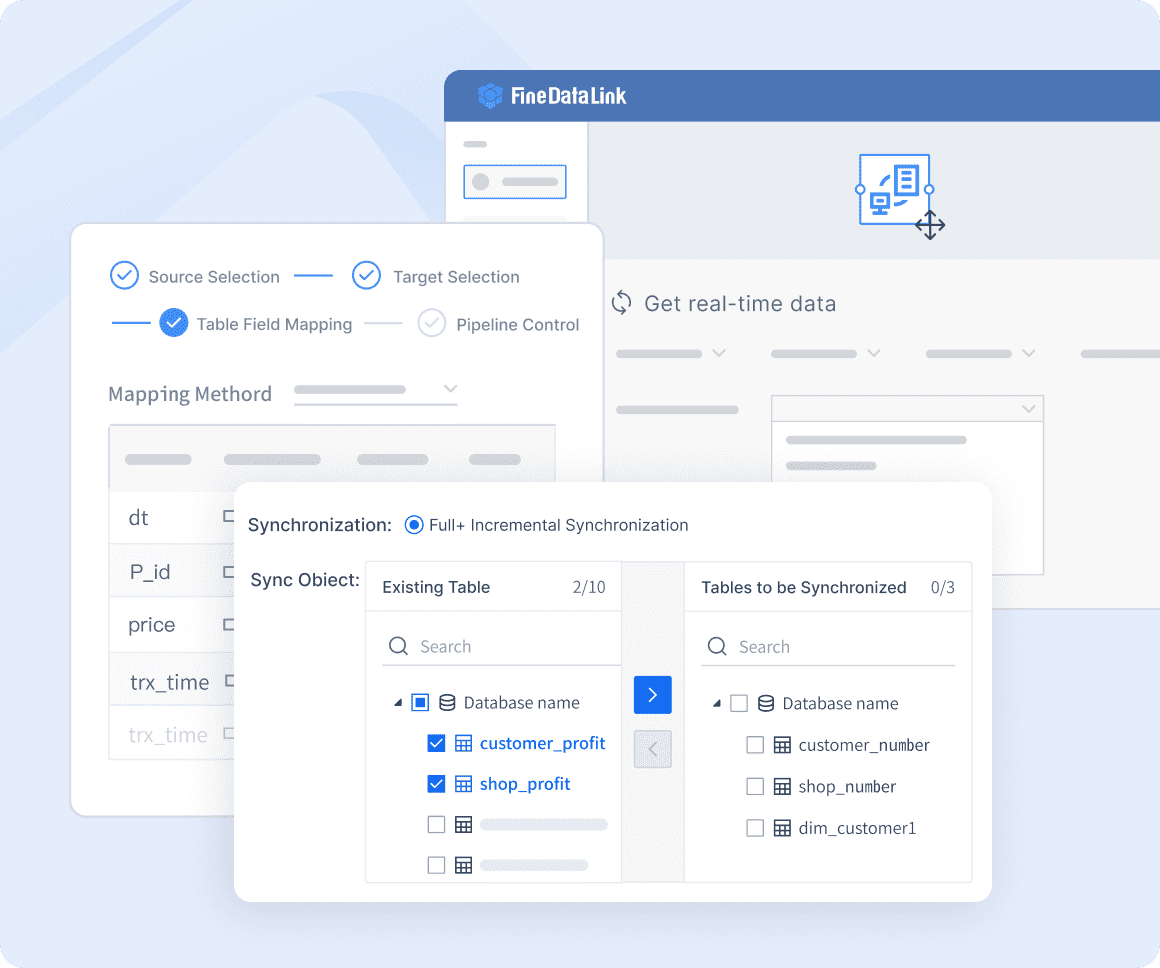
"FineDataLink offers a low-code platform that simplifies complex data integration, enabling seamless real-time data synchronization and advanced ETL & ELT data development."
FineReport for Reporting and Visualization
FineReport excels in creating dynamic reports and dashboards. It connects to multiple data sources, providing you with deeper insights. The drag-and-drop interface allows you to generate reports quickly. FineReport supports diverse visualization types, making it easier to interpret data. By using FineReport, you can filter data visually, focusing on key metrics. This approach enhances your ability to make informed decisions based on accurate data representations.
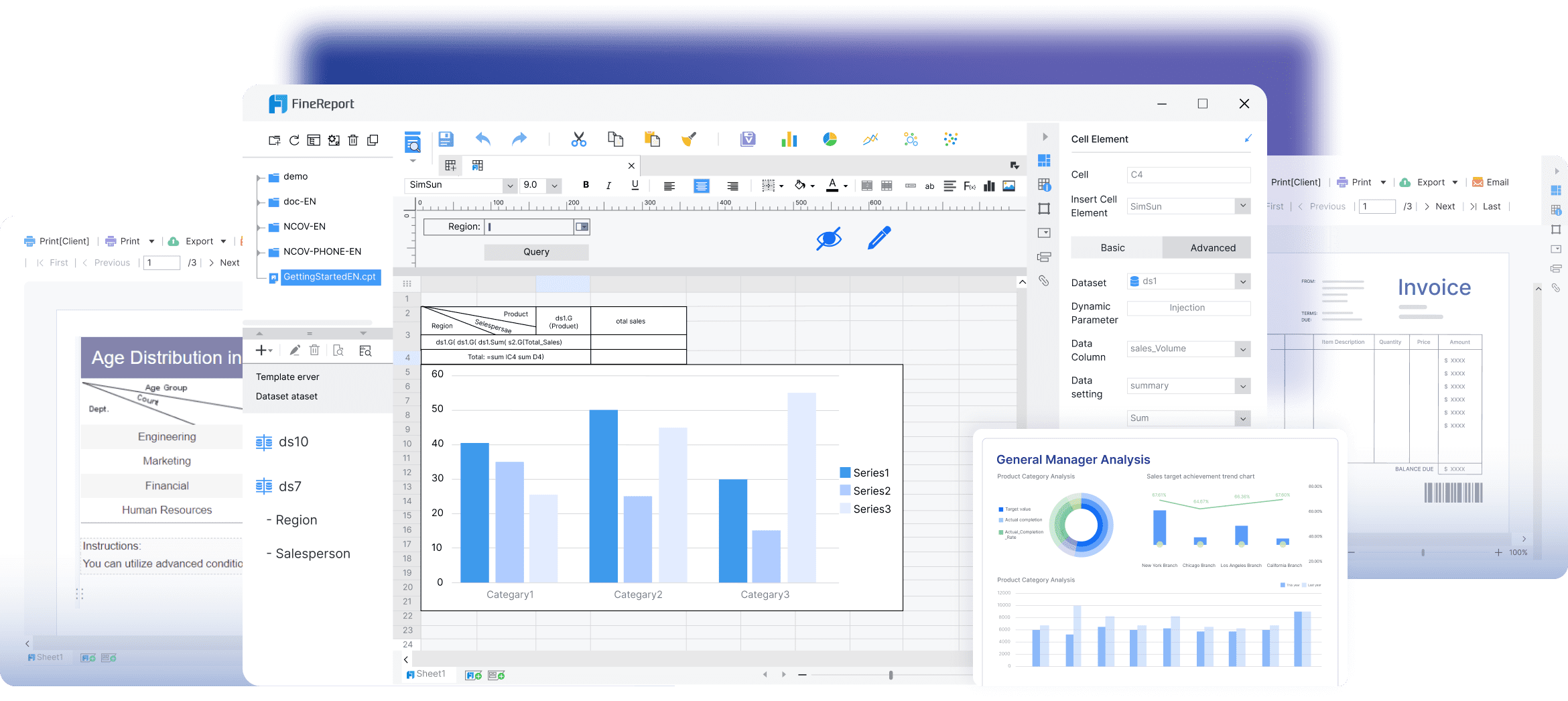
"FineReport easily connects to data from any source, uncovering deeper insights and delivering the reporting and analytics your business demands."
FineBI for Business Intelligence
FineBI is designed for self-service business intelligence. It empowers you to analyze and share data across your organization. With FineBI, you can transform raw data into insightful visualizations. The software supports real-time analysis, boosting productivity. By leveraging FineBI, you can filter data efficiently, identifying trends and predicting outcomes. This capability is essential for strategic decision-making and business growth.
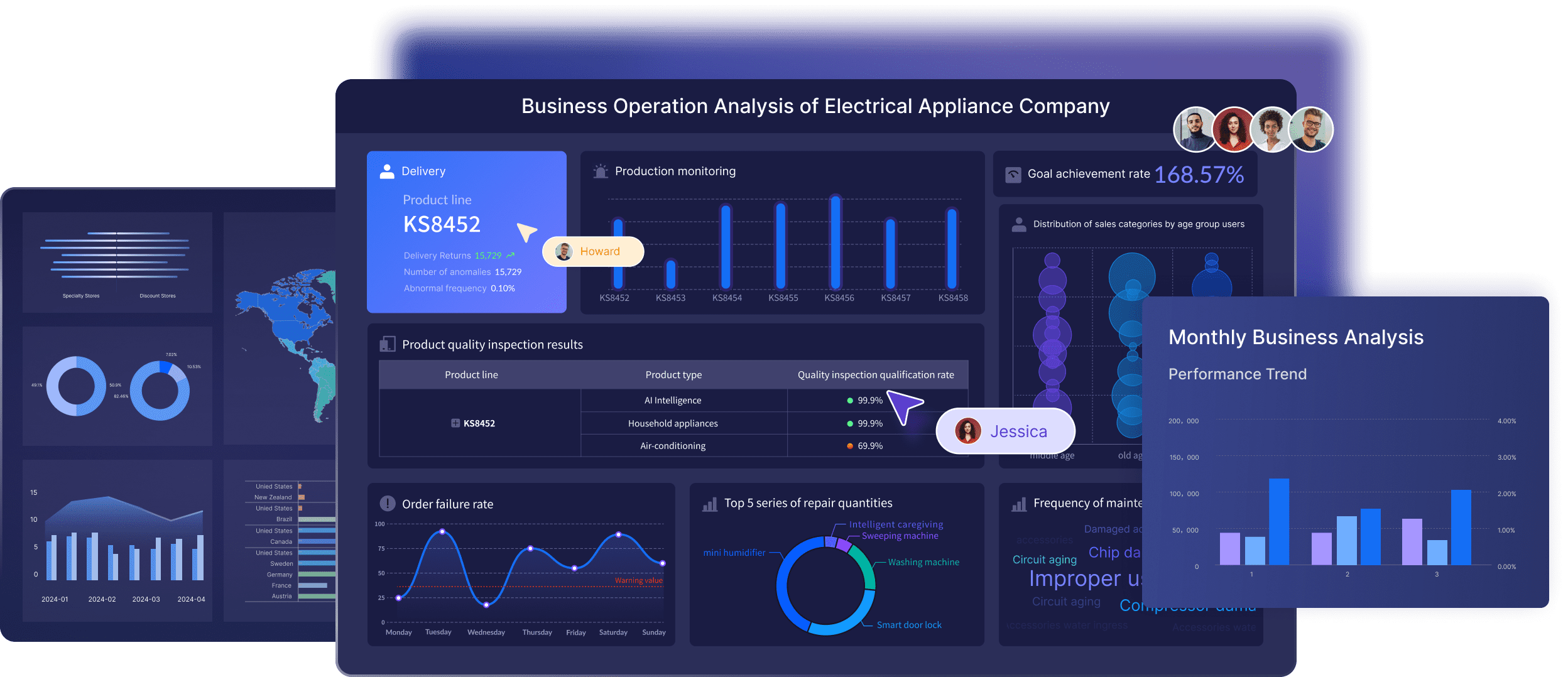
"FineBI transforms raw data into insightful visualizations, tracks KPIs, identifies trends, and predicts future outcomes."
FanRuan's tools, including FineDataLink, FineReport, and FineBI, provide comprehensive solutions for data filtering. These products enable you to refine datasets, ensuring that you focus on the most relevant information. By integrating these tools into your operations, you can enhance data quality, streamline processes, and drive informed decision-making.
FineVis for Data Visualization
FineVis stands as a powerful tool for data visualization, offering you the ability to transform complex datasets into clear, interactive visual representations. This platform provides over 60 chart types, including dynamic 3D visualizations, which allow you to explore data from multiple angles. With its intuitive drag-and-drop interface, you can create customizable dashboards without needing any coding skills. This feature makes FineVis accessible to users of all technical levels.
"FineVis offers a comprehensive suite of data visualization tools that include over 60 chart types, dynamic 3D visualizations, and customizable dashboards."
FineVis supports real-time analytics, enabling you to make informed decisions quickly. You can access these insights on various devices, such as smartphones, tablets, and PCs, thanks to its adaptive design. This flexibility ensures that you stay connected to your data, no matter where you are.
Incorporating industry-specific solutions, FineVis enhances efficiency in sectors like manufacturing, healthcare, and logistics. For instance, FanRuan's collaboration with companies like Danfoss showcases how FineVis contributes to smart manufacturing by providing actionable insights through data visualization. This capability allows businesses to optimize operations and drive growth.
By using FineVis, you can unlock the power of data storytelling. The platform's interactive charts and dashboards help you communicate complex information effectively. This approach not only improves understanding but also facilitates better decision-making across your organization.
Challenges in Data Filtering
Data filtering presents several challenges that you must address to ensure effective data management. Understanding these challenges helps you implement strategies to overcome them and maximize the benefits of data filtering.
Data Privacy Concerns
Data privacy remains a significant concern when filtering data. You must ensure that sensitive information remains protected throughout the filtering process. Implementing robust security measures is essential to prevent unauthorized access and data breaches. You should also comply with data protection regulations, such as GDPR or CCPA, to safeguard personal information. By prioritizing data privacy, you can build trust with your customers and maintain the integrity of your data.
"Ensuring data privacy during filtering processes is crucial for maintaining customer trust and complying with regulations."
Handling Large Data Sets
Managing large datasets poses another challenge in data filtering. As data volumes grow, you need efficient tools and techniques to process and analyze information quickly. FineVis offers advanced visualization features that help you explore and understand large datasets. With over 60 chart types and immersive 3D visualizations, you can uncover insights and spot trends effortlessly. This capability allows you to handle vast amounts of data without compromising on speed or accuracy.
"FineVis enables you to create live visualizations in minutes, making it easier to track trends and analyze data."
By addressing these challenges, you can enhance your data filtering processes and drive informed decision-making. Implementing effective tools and strategies ensures that you focus on the most relevant information, improving your business's overall performance.
Future of Data Filtering in Business
The future of data filtering in business promises exciting developments. As technology advances, you will find new ways to refine and utilize data more effectively. Staying informed about these changes will help you maintain a competitive edge.
Emerging Trends
- Real-Time Data Processing: Businesses increasingly demand real-time insights. You will see a shift towards systems that process and filter data instantly. This trend allows you to make decisions based on the most current information available.
- Increased Use of AI and Machine Learning: Artificial intelligence and machine learning continue to evolve. These technologies enhance data filtering by identifying patterns and predicting outcomes. You can expect more businesses to adopt AI-driven solutions for more accurate and efficient data analysis.
- Focus on Data Privacy: With growing concerns about data privacy, you will notice stricter regulations and more robust security measures. Companies will prioritize protecting sensitive information while filtering data. This focus ensures compliance with laws and builds trust with customers.
- Integration of IoT Devices: The Internet of Things (IoT) connects various devices, generating vast amounts of data. You will need advanced filtering techniques to manage and analyze this influx of information. IoT integration will become essential for businesses looking to leverage data from connected devices.
Innovations in Data Filtering Technologies
- Advanced Algorithms: New algorithms will emerge, offering more precise and efficient data filtering. These innovations will help you handle larger datasets and extract valuable insights quickly.
- Cloud-Based Solutions: Cloud computing provides scalable and flexible data filtering options. You can access powerful tools without investing in expensive infrastructure. This approach allows you to adapt to changing business needs with ease.
- Enhanced Visualization Tools: Visualization tools will become more sophisticated, enabling you to interpret complex data effortlessly. These tools will offer interactive features, helping you explore data from different perspectives.
- Automated Data Governance: Automation will play a significant role in data governance. You will see systems that automatically enforce data quality standards and compliance. This innovation ensures that your data remains accurate and reliable.
By embracing these trends and innovations, you can optimize your data filtering processes. Staying ahead of the curve will enable you to make informed decisions and drive business growth.
Data filtering plays a crucial role in enhancing your business operations. By focusing on the most relevant information, you streamline processes and make informed decisions. Implementing data filtering tools and techniques offers numerous benefits. You improve efficiency, reduce data overload, and enhance decision-making capabilities. Embrace data filtering to unlock the full potential of your data. This approach not only boosts productivity but also drives strategic growth. As you adopt these practices, you position your business for success in an increasingly data-driven world.
FAQ
Data filtering involves refining datasets to extract the most relevant information. You apply specific criteria to narrow down large volumes of data, focusing on what truly matters. This process enhances decision-making by presenting only the most pertinent data.
Data filtering plays a crucial role in managing and utilizing information effectively. By focusing on relevant data, you can customize and personalize offerings and services. This approach leads to better decision-making, increased efficiency, and cost savings.
By eliminating irrelevant information, data filtering allows you to concentrate on key insights. This focus helps you make informed decisions quickly, improving your business's overall performance and efficiency.
E-commerce: Businesses use data filtering to analyze customer behavior and preferences. This analysis helps tailor marketing campaigns and product recommendations.
Network Security: Data filtering identifies and mitigates threats, ensuring the integrity and safety of information networks.
Market Research: Companies filter data to identify emerging trends and consumer demands, allowing them to adapt strategies accordingly.
Handling large datasets and ensuring data privacy are common challenges. You need efficient tools and techniques to process and analyze information quickly while protecting sensitive data.
FanRuan offers a suite of powerful tools like FineDataLink, FineReport, FineBI, and FineVis. These tools help you manage and analyze data effectively, ensuring you focus on the most relevant information for your business needs.
Continue Reading About Data Filtering
How to Design an Effective Data Pipeline Diagram
Design a data pipeline diagram to streamline data flows, reduce errors, and enhance decision-making with tools like FineDataLink and FineBI.
Howard
Nov 11, 2024
10 Game-Changing Project Management Reporting Types!
Unlock project success with 10 must-know reporting types! Track progress, manage risks, and stay on budget like a pro.
Lewis
Mar 03, 2025
Best Data Integration Platforms to Use in 2025
Explore the best data integration platforms for 2025, including cloud-based, on-premises, and hybrid solutions. Learn about key features, benefits, and top players.
Howard
Jun 20, 2024
Best Data Management Tools of 2025
Explore the best data management tools of 2025, including FineDataLink, Talend, and Snowflake. Learn about their features, pros, cons, and ideal use cases.
Howard
Aug 04, 2024
Best Data Integration Vendors for Seamless Workflows
Discover the top 20 data integration vendors of 2025 for seamless workflows. Compare tools like Talend, AWS Glue, and Fivetran to optimize your data processes.
Howard
Jan 22, 2025
Covers Dashboard: Find Your Perfect Match
Choose the perfect covers dashboard to protect and style your car, enhancing its interior and resale value with the right material and fit.
Lewis
Nov 05, 2024


